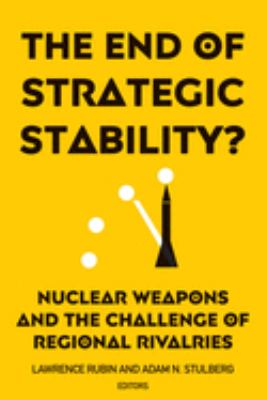
Book
|
The end of strategic stability? : Nuclear weapons and the challenge of regional rivalries
Copies
1 Total copies, 1 Copies are in,
0 Copies are out.
Title
The end of strategic stability? : Nuclear weapons and the challenge of regional rivalries
Call No
U263
Subjects
Nuclear crisis stability.
Nuclear weapons--Government policy.
Strategic forces.
Deterrence (Strategy)
Security, International.
Military policy.
LAW--International.
Deterrence (Strategy)
Military policy.
Nuclear crisis stability.
Nuclear weapons--Government policy.
Security, International.
Strategic forces.
Abschreckung
Atomstrategie
Kernwaffe
Strategische Stabilität
Nuclear weapons--Government policy.
Strategic forces.
Deterrence (Strategy)
Security, International.
Military policy.
LAW--International.
Deterrence (Strategy)
Military policy.
Nuclear crisis stability.
Nuclear weapons--Government policy.
Security, International.
Strategic forces.
Abschreckung
Atomstrategie
Kernwaffe
Strategische Stabilität
Language
English
Published
Washington, DC : Georgetown University Press, [2018]
Publication Desc
viii, 314 pages ;
ISBN
9781626166035
(electronic book)
LCCN
2017053582
Dimensions
23 cm









